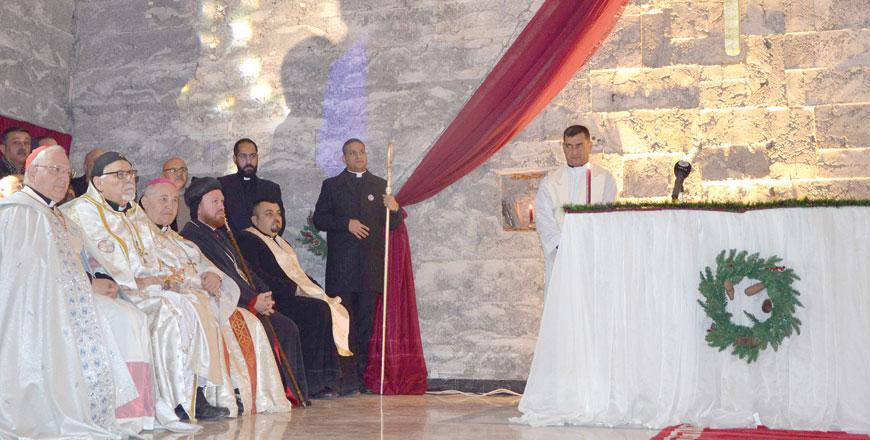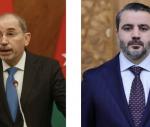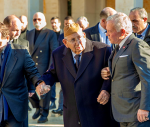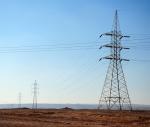You are here
In Jordan, Iraqi Christians dream of fresh start abroad
By AFP - Dec 18,2017 - Last updated at Dec 18,2017
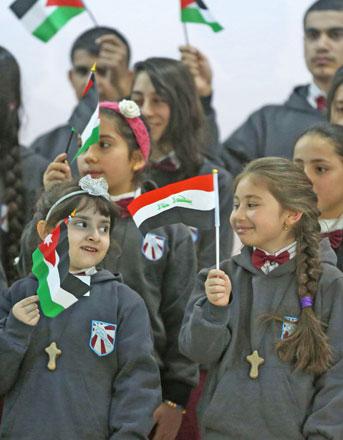
Iraqi Christian students wave Jordanian (left) and Iraqi flags as they line up at the Latin Patriarchate School in Amman on Wednesday (AFP photo)
AMMAN — Inside a church in Jordan, a displaced Iraqi Christian mother dreams of a brighter future for her children far from the war-torn country they were forced to flee.
She is among thousands of Iraqi Christians from the northern town of Bartalla to have sought refuge in neighbouring Jordan after running for their lives from extremists.
"We've lost everything. Our houses have been pillaged and destroyed. There's nothing left over there to make it worth returning," said Walaa Louis, 40.
When the Daesh terror group swept across northern Iraq in 2014 they told Christians to convert, pay tax, leave or die. Tens of thousands chose to flee.
Baghdad has announced final victory over the extremist group, but Louis says she will not return to a country where she does not feel safe.
She, her husband and three children — now aged 16, 15 and eight — fled Bartalla in August 2014, trekking for hours in the dead of night to the Iraqi Kurdish capital of Erbil.
They endured months of struggle in Erbil, including sleeping rough in parks or inside churches.
Iraqi forces retook Bartalla from Daesh earlier this year, but when Louis returned to her hometown in August she found nothing but a home in cinders.
She and her husband decided to head to Jordan, where they filed with the UN refugee agency for resettlement “in any safe country” to ensure her children’s future.
But as Christmas approaches, Louis said her family have received no financial aid and their money is running out.
“We’ve spent everything we had,” said Louis, who suffers from a heart condition.
“I can’t even see a doctor or buy Christmas presents for my children,” she said.
For now, her youngest son is among some 200 children aged 6 to 14 attending night classes at the Marka Latin Church in Amman.
‘Right to life’
They are taught by volunteer Iraqi teachers, and receive books, clothes and meals for free.
The night classes are all in English, the school’s head Sanaa Baki said, as the parents of most Iraqi students have applied for resettlement abroad.
She hopes the language skills will help the children better settle in foreign schools if these requests are granted.
Some 10,000 Iraqi Christian refugees live in Jordan, according to Father Rifaat Badr, who heads a Catholic research centre.
Many of them dream of new lives in Europe, Canada, Australia or in the United States.
The church’s priest, Khalil Jaar, believes education is also key to the children remembering where they come from.
“The saying goes, ‘If you want to destroy a people, erase their history and make their children ignorant’,” he said.
“We need to work to ensure all these children are given their right to education and to life.”
This month, France’s ambassador to Jordan, David Bertolotti, visited the church to announce a 120,000 euro ($140,000) donation for the night classes to continue until the end of the school year.
Under a large Christmas tree, children with wooden crosses dangling around their necks sang the Iraqi national anthem at the top of their lungs.
Ban Benyamin Yussef, a mother-of-four, was among the parents present.
“After Daesh members plundered, destroyed and burned our home and my husband’s grocery shop, we decided to pack our bags and seek refuge in Jordan, hoping to start a new life,” the 43-year-old said.
It was the last leg of a journey fleeing harassment across Iraq.
“When sectarian violence flared in 2006, we received death threats and fled Baghdad for Mosul”, a city in northern Iraq, she said.
Threatened there too, they escaped to a small village north of the city — until Daesh arrived in 2014.
But even now that Iraqi forces have claimed victory over the extremists, Yussef and her family have no intention of returning to Iraq.
“We can’t go back. Our towns have been destroyed. We’ve lost everything.”
Related Articles
BARTALLA, Iraq — Iraqi Christians filled the pews of the fire-scarred Mar Shimoni Church in a town east of Mosul on Christmas Eve for the fi
MOSUL, Iraq — Hymns and cries of joy filled a church in Iraq's second city Mosul on Sunday as worshippers celebrated Christmas there for the
BARTALLA, Iraq — A Christmas tree stands on a roundabout in Bartalla in northern Iraq, its base adorned by posters of Shabak martyrs killed



